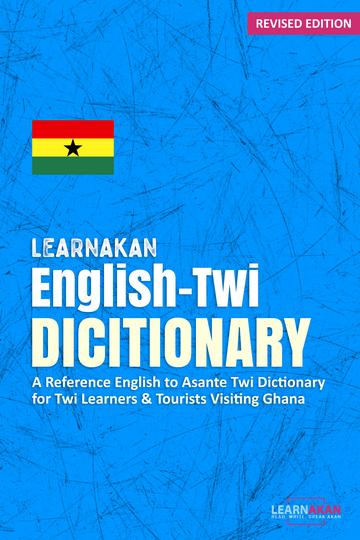UPDATE: We have a new YouTube channel. Please CLICK HERE to visit and subscribe to it for video lessons.
Twi Asuafoɔ, mema mo nyinaa akye (Twi learners, Good morning to you all).
I receive lots of questions on daily basis. Whereas some of these questions seek clarifications on parts of individual lessons on this website, others border on aspects of the language that are yet to be covered here. I sometimes marvel at the depth of some of these questions. In my attempts at addressing some of them, I get to critically observe certain details that I hitherto may not have paid much attention to, consequently helping me to learn more about this beautiful language.
Following from the above observation, I thought: if I learn that much answering learners’ questions, wouldn’t other learners benefit from these question-address interactions? It is for this reason that – from today – I’m beginning a new post series named the Twi Q&A. Each week, I’ll feature one question from a learner, and my response to it. I’ll keep the name of the one who asked the question anonymous. If you want to contribute to the discussion, you may do so by commenting below the post.
So, congratulations to the learner who sent the e-mail below this morning. It is our first feature in the series.
The e-mail
Mekyea wo
Mene m’adamfoɔ bɔɔ nkɔmmɔdie wɔ twi mu na ɔbisaa sɛnea yɛka “if you did that, I would appreciate it” wɔ Twi mu. Mesee no sɛ yɛtumi ka “sɛ wobɛyɛ a, m’ani bɛgye”. Memmoa, anaa?
Nso, in the sentence (the English translation) it has two tenses in it, one past tense (if you did that) and future tense (I would appreciate it). How do we handle something like that in twi?
Meda wo ase.
English translation of the first paragraph of the e-mail
My friend and I were conversing in Twi and he/she asked how we say “if you did that, I would appreciate it” in Twi. I told him that we can say “sɛ wobɛyɛ a, m’ani bɛgye”. I’m not wrong, I’m I?
My response
Hi,
First off, I’m sure I wouldn’t be the only one impressed by your Twi writing skills. This is great; do keep it up.
Before I respond to your question, let’s observe a few things:
1. “mene m’adamfoɔ bɔɔ nkɔmmɔdie” should be “me ne m’adamfo bɔɔ nkɔmmɔ”.
a. “mene”: Apart from subject pronouns that are directly followed by verbs, and singular possessive adjectives that are followed by names of possessed objects beginning with the letter ‘a’, all pronouns must stand on its own in writing. If you need more clarification for this, please CLICK HERE.
b. “adamfoɔ/m’adamfoɔ”: In most instances, the ‘fo’ and ‘foɔ’ suffixes are used interchangeably without problems. However, if you are using a word like ‘adamfoɔ’ as a possessed entity, together with the possessive adjective ‘me’, a restriction on the use of the ‘foɔ’ suffix arises. It has to be ‘m’adamfo’ and not ‘m’adamfoɔ’. Why this is the case is quite complex as you may come by other such constructions with no restriction on the ‘foɔ’ I’ll do a lesson on this later but, for now, please stick with “m’adamfo”.
c. bɔ and di are basically the same when it comes to the act of conversing. So, you can say “bɔ nkɔmmɔ” and “di nkɔmmɔ” to basically mean the same thing. So, if you say “bɔɔ nkɔmmɔdie”, you’ve repeated the verb.
That was just by the way. Now, on to your question.
bɛ is the future marker in Twi. So, when you use bɛ in a verb phrase, you are basically referring to something that is to happen in the future. Using your example, “wobɛyɛ” in itself translates as “you WILL do”. In that sense, the English equivalent would’ve been “If you WILL do that, I would appreciate it.
As you rightly noted, one part of the original text is in the past tense while the other is in the future. So, we’ll have:
“sɛ woyɛɛ saa a, nka m’ani bɛsɔ” (m’ani bɛgye is I’ll be happy; m’ani bɛsɔ is I’ll appreciate).
Let’s do a little breakdown:
- wo = you
- yɛ = do
- woyɛ = you do
- woyɛeɛ = you did
- woyɛɛ = you did (used when a direct object follows the verb phrase like in your example: woyɛɛ saa) You may read more on this HERE.
I hope this is clear enough.




Responses
This is excellent!!!
Reading your corrections to the contributor’s written Twi was very very helpful and I admire the contributor’s courage. It got me wondering that it would also be interesting, if you had the time, to start a weekly series something like …. “Correct Me Please” where we attempt to make corrects to a sentence that you post.
Thanks.
That’s a good suggestion. Thank you, Lionel. I’ll consider featuring that on our Facebook page.